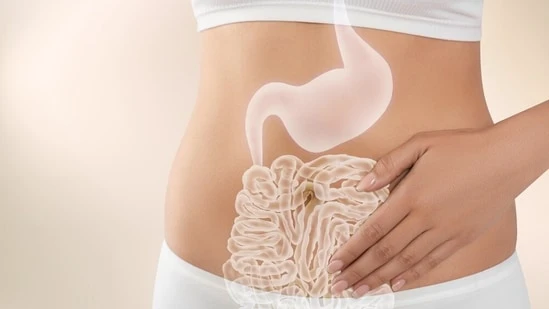What happens to your gut after 40? Doctor lists 5 major changes, shares tips to manage

By the age of 40, the digestive system begins to undergo subtle changes that can impact overall well-being, from nutrient absorption to bowel regularity.
In an interview with HT Lifestyle, Dr. Ankur Jain, associate director and unit head of gastroenterology, hepatology and endoscopy, Max Super Speciality Hospital, Dwarka said, “Your gut health in your 40s and beyond is a dynamic interplay of age, diet, lifestyle, and medical factors. A proactive approach rooted in nutrition, movement, and regular monitoring can ensure a healthy gut and a better quality of life.” Nutritionist shares 5 signs of poor gut health: Brain fog, bloating, irritation and more
Here’s what happens to your gut after the age of 40:
1. Slower digestion and metabolism
With age, the rate at which food moves through the digestive tract slows down. This can lead to a feeling of fullness, bloating, or constipation. The decline in muscle tone of the digestive tract and reduced secretion of digestive enzymes means that food takes longer to break down.Doctor lists 5 major changes
How to manage: A fiber-rich diet, adequate hydration, and regular physical activity can help counteract these effects.
2. Decrease in stomach acid (hypochlorhydria)
Stomach acid plays a crucial role in breaking down food and killing harmful bacteria. After 40, many people experience a drop in stomach acid levels, which can lead to indigestion, nutrient deficiencies (especially B12, iron, and calcium), and an increased risk of gut infections.Doctor lists 5 major changes
How to manage: Eating smaller, more frequent meals and fermented foods may help digestion.
 3. Gut microbiome imbalance
3. Gut microbiome imbalance
The diversity and balance of gut bacteria often decline with age, impacting immunity, mood, and digestive efficiency. Antibiotic use, poor diet, and stress can accelerate this imbalance.
How to manage: Probiotics, prebiotic-rich foods (like garlic, onions, bananas), and a plant-based diet can help maintain a healthy microbiome.
4. Higher risk of gastrointestinal disorders
Age-related weakening of the gastrointestinal lining can make one more susceptible to issues like acid reflux, diverticulosis, or irritable bowel syndrome (IBS).
How to manage: Regular health check-ups, mindful eating, and avoiding triggers like spicy foods or late-night meals can reduce the risk.
5. Impact of medications and comorbidities
After 40, many individuals begin taking long-term medications for conditions like hypertension, diabetes, or arthritis. These drugs can influence gut motility and flora, sometimes causing constipation or diarrhea.
How to manage: Consulting a doctor about gut-friendly alternatives and using supplements wisely can minimise side effects.









